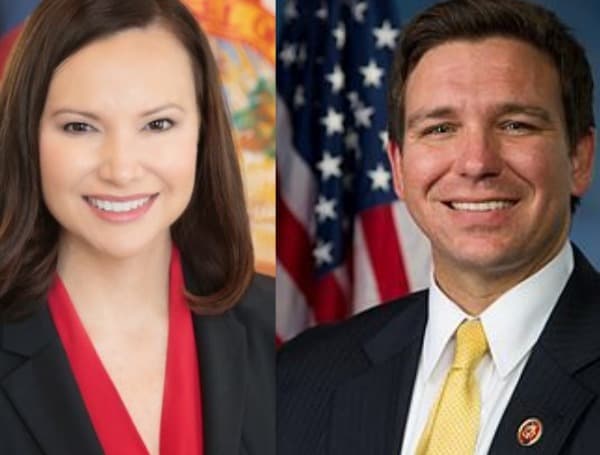Gov. Ron DeSantis and Attorney General Ashley Moody are appealing a federal judge’s ruling that blocked part of a new state law that placed restrictions on how race-related issues can be addressed in workplace training — a law DeSantis dubbed the “Stop WOKE Act.”
Lawyers for DeSantis and Moody filed a notice Friday that is a first step in asking the Atlanta-based 11th U.S. Circuit Court of Appeals to take up the issue.
Chief U.S. District Judge Mark Walker last month issued a preliminary injunction, agreeing with three businesses and a consultant that the workplace-training restrictions violate the First Amendment.
At least three other pending federal lawsuits challenge part of the law placing restrictions on how race-related issues can be addressed in public schools and higher education. Walker’s preliminary injunction did not address the education issues.
As is common, Friday’s notice of appeal did not detail arguments that the state will make at the appeals court. In addition to DeSantis and Moody, defendants in the case included members of the Florida Commission on Human Relations.
In the news: Florida Gov. Ron DeSantis, Challenger Charlie Crist To Square Off In October Debate
The law (HB 7), which DeSantis signed April 22, spurred fierce debates before passing during this year’s legislative session. DeSantis called it the “Stop Wrongs To Our Kids and Employees Act,” or Stop WOKE Act.
The employment-related part of the law lists eight race-related concepts and says that a required training program or other activity that “espouses, promotes, advances, inculcates, or compels such individual (an employee) to believe any of the following concepts constitutes discrimination based on race, color, sex, or national origin.”
As an example of the concepts, the law targets compelling employees to believe that an “individual, by virtue of his or her race, color, sex, or national origin, bears personal responsibility for and must feel guilt, anguish, or other forms of psychological distress because of actions, in which the individual played no part, committed in the past by other members of the same race, color, sex, or national origin.”
The plaintiffs in the lawsuit, filed June 22, are Primo Tampa, LLC, a Ben & Jerry’s ice-cream franchisee; Honeyfund.com, Inc., a Clearwater-based technology company that provides wedding registries; and Chevara Orrin and her company, Collective Concepts, LLC. Orrin and her company provide consulting and training to employers about issues such as diversity, equity and inclusion.
They contend the law violates their ability to discuss issues such as racism and implicit bias with employees. They have pointed to the need for such things as diversity training for employees.
In his Aug. 18 decision on the preliminary injunction, Walker wrote that the law “targets speech.”
In the news: Despite Best Efforts To Demonize Florida Gov. Ron DeSantis, One Of His Signature Achievements Gains Strength
“If Florida truly believes we live in a post-racial society, then let it make its case,” Walker wrote. “But it cannot win the argument by muzzling its opponents. Because, without justification, the (law) attacks ideas, not conduct, Plaintiffs are substantially likely to succeed on the merits of this lawsuit.”
In district-court filings, attorneys for the state disputed that the law violates First Amendment rights, saying it only bars businesses from requiring employees to take part in training programs that use the targeted concepts.
“They (the law’s restrictions) leave employers free to engage in, promote and pay for any speech they wish, including the invidiously biased speech targeted by the act, and they leave willing employees free to hear and to join in it,” the state’s lawyers wrote last month. “All they prevent is the use of the employer’s coercive economic leverage over its employees to make them an offer they can’t refuse: Listen to the company’s speech or clear out your desk.”
Visit Tampafp.com for Politics, Sports, and National Headlines. Support journalism by clicking here to our GiveSendGo or sign up for our free newsletter by clicking here.
Android Users, Click Here To Download The Free Press App And Never Miss A Story. Follow Us On Facebook Here Or Twitter Here.
Copyright 2022 The Free Press, LLC, tampafp.com. All rights reserved. This material may not be published, broadcast, rewritten, or redistributed.



